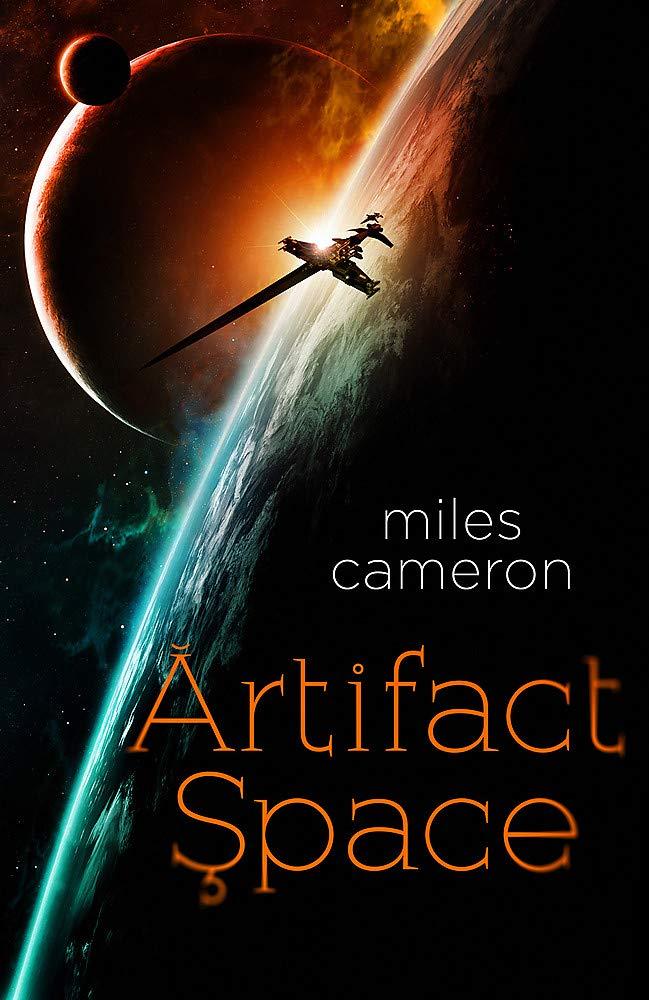How did I not know about Miles Cameron before now? Maybe because he writes under three names: Gordan Kent, Miles Cameron, and Christian Cameron, depending on his genre.
I’ll put my confusion aside for the moment to talk about the excellent book I just finished: Artifact Space.
It’s the distant future and humanity has expanded outward. Trading consortiums operate the Great Ships which are kilometers long and capable of “insertion” – Cameron’s version of hyperspace – by collecting enough artifacts (remnants) of the Big Bang to be able to enter “Artifact Space,” where the distances are much smaller. This is the first new thought, or twist, on hyperdrive that I’ve read in years, and I loved it.
We immediately meet Marca Nbara, a disgraced expellee from the Orphanage. If she hadn’t been abused by those in power, she would have been able to rightfully join the Service aboard the Athens. Instead, she must fake her way in. Once in, she works very hard to prove that she belongs.
The story is a great one, full of turns, subtle reveals, and a few not-so-subtle ones. On the Feral Scale, the story comes in at a very strong 9. It was the first sci-fi novel in quite some time that made me stay up late to read just a little more. Cameron even manages to throw in a reference to Middlemarch that surprised me and managed to flow with the story.
More surprising to me was the science and the military accuracy. Cameron served as a US Naval Officer and flew aboard S-3 Vikings in Gulf War One. He brings a lot of that experience to Artifact Space, and it gives the entire novel a ring of authenticity I haven’t found a lot of other places. I’m an aviation snob, former Air Force fighter pilot and Test Pilot, and routinely besmirch the characters on TV or in movies who don’t make the effort to get the details correct. Cameron does it right.
There’s not much science to pick at. Velocities and distances seem reasonable. The tech seems reasonable. He thought a lot about the problems associated with combat in space. Cameron even does a very nice job of acknowledging relativity and the impact of high velocity travel on the passage of time. Nothing made me roll my eyes except for one, likely inadvertent, section where he uses “weight” instead of “mass.” Overall, the science feels like an 8.
Fair warning: This is Book One of a Duology. Hopefully Book Two is not far away. I’ll preorder it the first chance I get and plan to check out both his fantasy and thriller lines.
Spoiler Alert: Very minor spoilers ahead.
You’ve been warned.
Seriously.
A few things struck me as unlikely or unexplained:
The DHC (the trading consortium/Space Navy) is fully formed when we join the story, yet there is no history of significant interstellar war. Why spend all that time and effort on a combined cargo ship/aircraft carrier without justification?
Marca Nbara comes up with the idea of widely spacing sensors to create what is essentially a very large array. We know about this now and do it even with telescope arrays on the ground. It seems unlikely that we would forget this wonderful capability.
Finally, as much as members of my family love Middlemarch, I doubt it will be read by anyone, except scholars studying Elizabethan literature, in the future. Saddest of all, it is currently outselling SPARK on Amazon. Let’s fix that! Buy SPARK here.
That’s all. No other nits.


